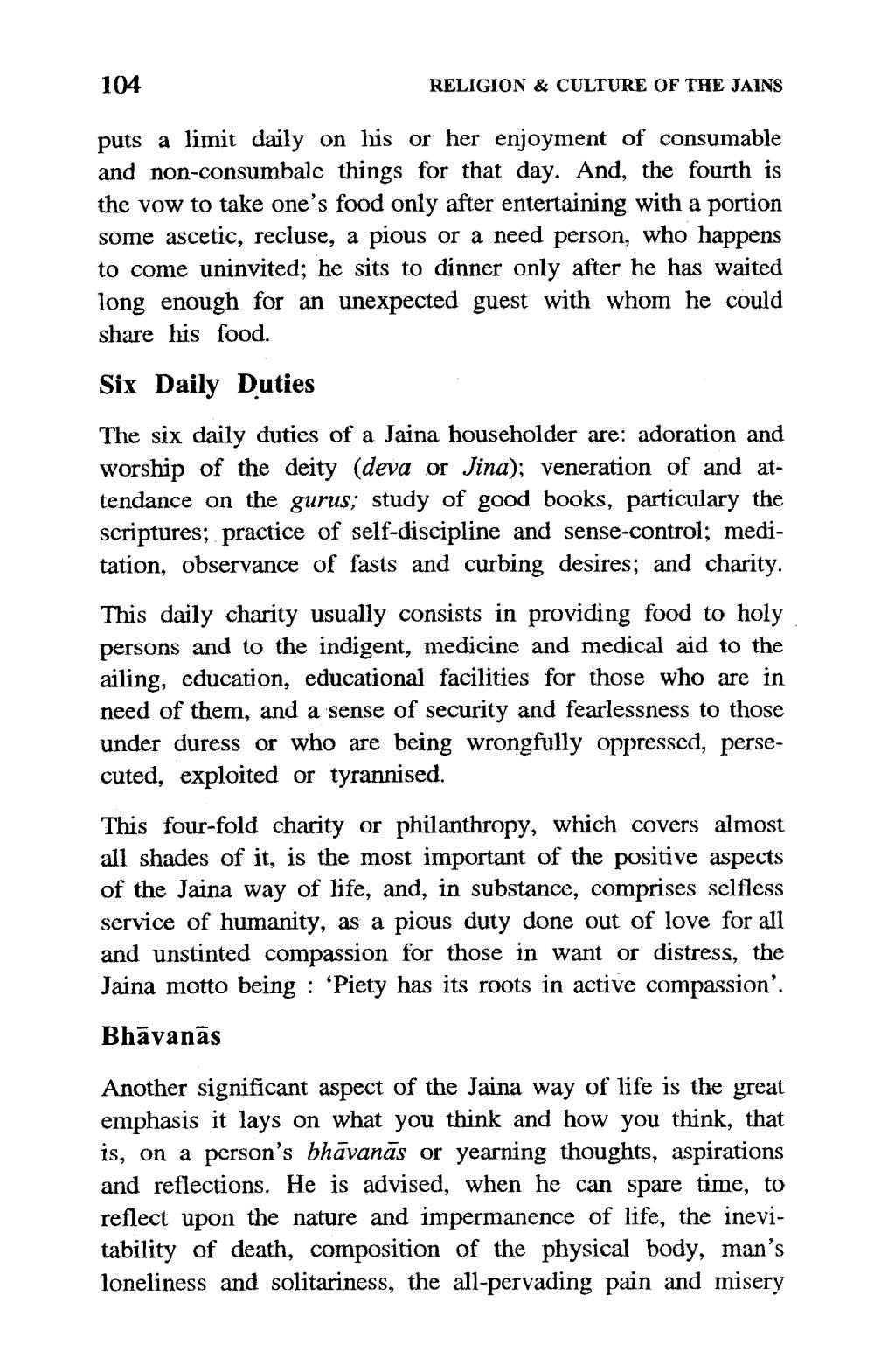________________
104
RELIGION & CULTURE OF THE JAINS
puts a limit daily on his or her enjoyment of consumable and non-consumbale things for that day. And, the fourth is the vow to take one's food only after entertaining with a portion some ascetic, recluse, a pious or a need person, who happens to come uninvited; he sits to dinner only after he has waited long enough for an unexpected guest with whom he could share his food.
Six Daily Duties The six daily duties of a Jaina householder are: adoration and worship of the deity (deva or Jina); veneration of and attendance on the gurus; study of good books, particulary the scriptures; practice of self-discipline and sense-control; meditation, observance of fasts and curbing desires; and charity.
This daily charity usually consists in providing food to holy persons and to the indigent, medicine and medical aid to the ailing, education, educational facilities for those who are in need of them, and a sense of security and fearlessness to those under duress or who are being wrongfully oppressed, persecuted, exploited or tyrannised.
This four-fold charity or philanthropy, which covers almost all shades of it, is the most important of the positive aspects of the Jaina way of life, and, in substance, comprises selfless service of humanity, as a pious duty done out of love for all and unstinted compassion for those in want or distress, the Jaina motto being : ‘Piety has its roots in active compassion'.
Bhāvanās
Another significant aspect of the Jaina way of life is the great emphasis it lays on what you think and how you think, that is, on a person's bhāvanās or yearning thoughts, aspirations and reflections. He is advised, when he can spare time, to reflect upon the nature and impermanence of life, the inevitability of death, composition of the physical body, man's loneliness and solitariness, the all-pervading pain and misery




